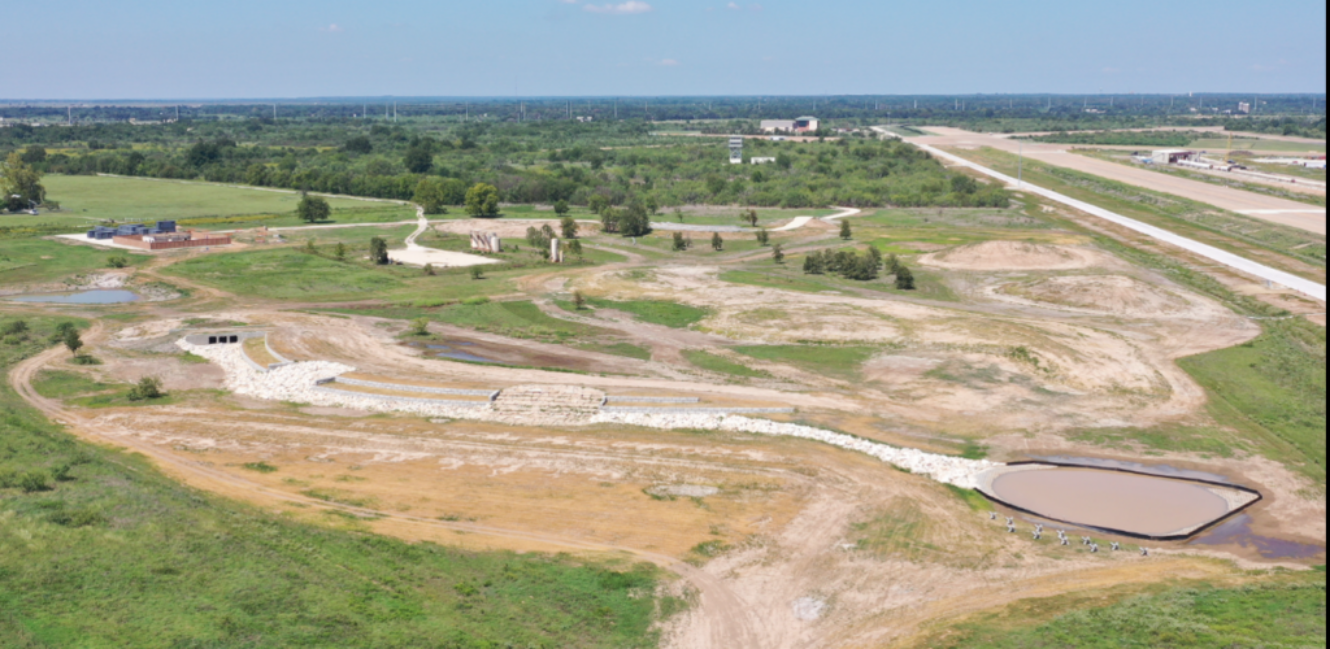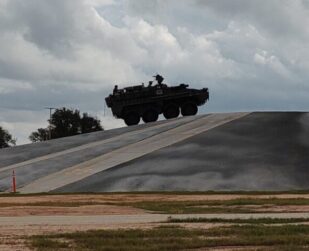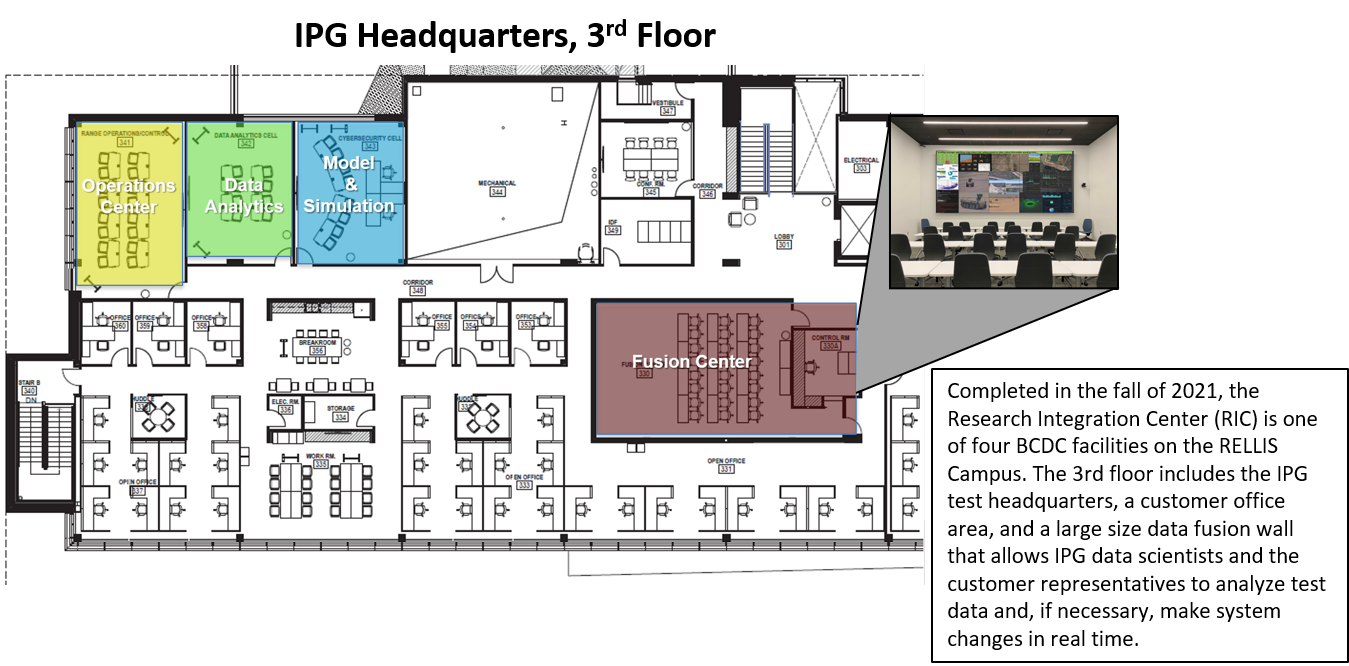

The BCDC’s Innovation Proving Grounds
Using $50 Million funded by the Texas Legislature, the IPG is located on The Texas A&M University System’s RELLIS Campus. The IPG provides an outdoor test and experimentation facility capable of rigorously assessing a myriad of technologies, sensors, platforms, networks and testing processes in an operationally relevant environment. It is postured to support the test and evaluation of technology across the Technology Readiness Levels, ranging from innovative prototypes to fully developed programs. Key to the IPG is its agile approach to testing and test processes which position it as a Proving Ground for Proving Grounds. The IPG is a key component of the George H.W. Bush Combat Development Complex (BCDC).
Key Attributes of the IPG
- Postured to support a “shift left” testing and research approach by providing a readily available venue for assessing systems and technologies (prototypes thru programs of record) early in the process in full collaboration with Stakeholders
- Provides fully instrumented facilities and systems in order to optimize Situational Understanding, data opportunities, and enable analytics (esp. real-time streaming analytics)
- Facilitates evaluations in an operationally relevant environment across multiple domains (Land, Air, Cyber) and in 3-Dimensional space (Air-Ground-Subterranean…Phase 2) involving users early and often
- Services a broad array of customer: military services, federal agencies, private industry, and other academic institutions
- Delivers tailorable support to a full range of events including: Tests and Evaluations, Sponsored Technology Exhibitions; Innovation, Integration, Evaluation Events (I2E2); Hosted Agile Learning Events (HALE); and Basic and Applied Research Efforts
IPG Capabilities Overview
The IPG test areas encompass 134 acres of land and include:
Test Areas: One of the key attributes of the IPG is the ability to move technologies from the laboratory to a realistic environment for testing in various conditions – undesirable weather, limited visibility, complex terrain, cyber environments, etc.
The Mobility Challenge Course (MCC): A 1-mile long test track consisting of a mix of surface types, obstacles, slopes and gradients to facilitate assessments of maneuverability, durability, performance and decision-making aspects of autonomy.
The Off-Road Test Area (OTA): A network of unimproved roads and trails combined with open-maneuver terrain, a tailorable soil lane and a water fording area. This test area allows for full operational realism and complex integration of air and ground systems supporting assessments of a vehicle’s ability to effectively operate in a cross-country environment and vehicles’ abilities to coordinate and collaborate to accomplish tasks.
Private Network: The IPG integrates a full range communications architecture to provide a revolutionary network environment that is unmatched by test capabilities currently available to the Department of Defense (DoD), industry and academic research. The highlight of this network is a private 5G LTE capability that enables unique testing and evaluation capabilities, including but not limited to:
- The ability to stream video feeds and massive amounts of data from sensors and platforms with extremely low latency and high reliability
- The ability to be quickly reconfigured and tailored to unique testing requirements
- The ability to be used as a vector for cyber exploitation of platforms
- The ability to be exploited (attacks on the network and the core itself) and quickly restored
As research security is a top priority, the IPG teams have incorporated the appropriate security protocols and measures throughout the design and operation of the facilities.
Instrumentation: The IPG will be a fully instrumented facility outfitted with the latest on- and off-platform technologies to capture data and then optimize the network for streaming this information to the test teams. The IPG will be unrivaled in this effort, as all the test areas will be outfitted with cameras and sensors full time. Because of the network, it will not be tied to halts in activities to harvest data, but will instead have the data delivered in real-time to the analysts, vastly increasing efficiency.
Cybersecurity: The IPG enables the ability to conduct comprehensive cyber resiliency efforts in an operational environment. By combining the private network with contemporary cybersecurity tools – offensive and defensive – the IPG not only is able to support the exploitation and protection efforts of platforms, but also the actual exploitation and protection efforts of the network itself.
Modeling and Simulation: The IPG fully utilizes the power of gaming, modeling and simulated environments to gain efficiencies in testing. The entire IPG is being modeled, allowing for simulated iterative and repetitive scenario execution of high-risk events. Additionally, the IPG has the ability to use M&S to expand the physical testing to a larger context through either a constructive simulation or through network architecture, which permits participation in distributed tests.
Data Collection and Storage: The IPG is unique in its capability to collect and store test data. Using wireless streaming as the primary method for collection vastly decreases test cycles, ensures minimal intrusion into the realistic test scenarios and provides the ability to begin analysis during execution, accelerating the analysis and reduction activities and facilitating in-stride changes during tests. In relation to data storage, the IPG has the ability to store large amounts of data to support a reach-back capability and, as authorized, sharing/collaboration.
Test Support: The IPG has experts in the areas of test planning and administration, instrumentation, modeling and simulation, data analytics and cybersecurity.
Each cell works for a test director and is responsible for collaborating with customers in developing CONOP-based events tailored to requirements in order to obtain optimal results.
Additionally, to facilitate full collaboration and immediate support, users are given space to set up operations in the IPG’s test headquarters, working shoulder-to-shoulder with the test teams during the preparation and execution of the event.
The IPG provides users with an exceptional venue for testing and research. By combining state-of-the-art infrastructure, methods and techniques with teams of experts in supporting test and research activities, the IPG creates a unique, world-class ecosystem that optimizes outcomes for the test and research communities.

